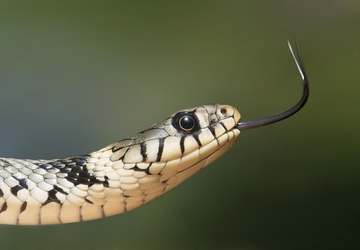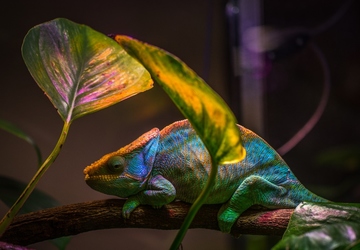Over the years, many myths have circulated about the caretaking of reptiles, which has led to the mishandling of these creatures. Unfortunately, these rumors have misled so many people that reptiles don't receive the healthy lifestyle they deserve. This article will misspell several myths so that current reptiles owner will make sure to treat their reptiles with the sensitivity they deserve.
Misconceptions About Keeping Reptiles as Pets
Reptiles are cold-blooded vertebrates with scaly bodies. Within the past few years, the world has normalized keeping these creatures as pers. However, certain myths regarding the custody of reptiles undermine their caretaking. Explore this article to seek awareness about supervising reptiles if you own them.

1. Reptiles Are Dangerous
Reptiles are increasingly popular as dangerous creatures due to the spread of salmonella half a century ago. It’s unfair that it's blamed entirely on reptiles as it happened because of Aquatic turtles since they swim in unclean surroundings. Five out of two hundred cases of salmonella happen through reptiles due to poor sanitation. However, the rest of the salmonella cases result from the diet people take.
People can get diseases like salmonella for other reasons, so it's a myth to consider reptiles dangerous. Like any other animal, they can have bacteria, parasites, and viruses, but that doesn't make them unworthy. Salmonella exists, but proper precautions must be taken to prevent the spread of the disease.
2. They Don’t Need Complex Diets
People who pet reptiles have this misconception that they are fulfilled with eating insects or mice. In reality, reptiles are missing out on many nutrients, scents, and textures. Their diet is complex, demanding much more of what they can obtain from those insects. Another mistake reptile holders make is stuffing reptiles with calcium supplements to streamline their metabolic processes. It's an aggressive approach, as overfeeding them calcium isn't preferable. They need to be fed strategically.
3. Reptiles Don’t Seek Environmental Enrichment
Reptiles respond to environmental enrichments if exposed to them. These aren't as expressive as mammals but demonstrate attention to their surroundings. Varied hiding and climbing places can stimulate their instincts. They are also playful and seek pleasure in chasing objects and moving around. Reptiles will surely enjoy similarities to their natural habitat if provided with the essentials.
4. Reptiles Require Less Care
They are different than mammals, but that doesn't mean they don't look for care. They need affection as much as any other pet, so the owners should take good care of them. They also want suitable households with appropriate temperatures and humidity to survive. Moreover, they can face serious health issues if their hygiene is not ensured.
5. Reptiles Don’t Seek Veterinary Care
Veterinary care is the professional medical attention that is given to animals. Since reptiles demonstrate their feelings with hesitant sickness, symptoms might not be detected by looking at them. The possibility of diseases makes constant veterinary visits important for reptiles, just like other animals. It's necessary for nutritional guidance, injuries, vaccination requirements, or the diagnosis of any other health issues.
Regular checks will ensure the well-being and long life of reptiles. So avoid this stereotype about reptiles not requiring veterinary care and get them medical attention whenever required.
6. Reptiles Are Not Affectionate Towards Their Owners
It’s very untrue that reptiles aren’t affectionate towards their owners. Building a bond with reptiles takes time, as they are reserved. If they are nursed gently and tenderly, they show signs of attachment. Symptoms of love for their caretakers can be when they like touching or closing their eyes while being held.
Some reptiles will even show more enthusiasm than others in the presence of their supervisors. They might follow them around and approach them. Others might even show distress if their owners aren't around for extended periods. However, those with pet reptiles should not be reluctant to be friendly with them.
7. Reptiles Don’t Need Larger Spaces

Moving around freely in your habitat is a liberating aspect of life, even for animals. Thus, instead of captivating your reptiles in smaller enclosures, please provide them with spaces sufficient for them. This way, they will exercise, be comfortable, and be happy. Enclosing them in a smaller space will distress them, and they might develop health problems.
8. All Reptile Supplements Are More or Less the Same
This myth needs to be debunked. Every reptile has diversified dietary needs according to the type of species, size, and age. Supplements are given to reptiles to provide them with certain nutrients they lack. Some might need calcium with vitamin D3 and others with vitamin A. Consequently, every reptile should be given what they should have with consultation.
9. Reptiles Have Short, Live
A reptile's life span depends on how well they are administered. Their nature, instincts, and social behavior needs to be observed to give them a fitting environment. Some turtles, like Galagapos, can live over centuries, while some snakes can live beyond 50 years. Other snakes, for example, ball pythons, can live for decades if suitable.
Smaller animals: skinks or geckos can survive for five to ten years. Honestly, the life span in reptiles is more extended and shorter both. It just relies on the type of specie they are and the lifestyle they are given.
10. Reptiles Are Inexpensive Animals
Buying a reptile might be cheap, but its day-to-day expenses make them very expensive. The cost of building an enclosure with toys and climbing structures.The regular visits to a veterinary to get them checked, the vast dietary preferences, and the necessity for supplements. It all adds up to making reptiles pricey animals to pet.
Conclusion
Concludingly, much of the fiction about reptiles needs to be misspelled. They deserve equal recognition and comprehension, like any other animals. Their unique attributes make them beautiful. Contrary to these beliefs, they are capable of bonding with people, which is why they shouldn't be isolated. According to everything we learned in this article, awareness about these species must be spread. Educate yourselves and embrace the ecosystem around you.
















